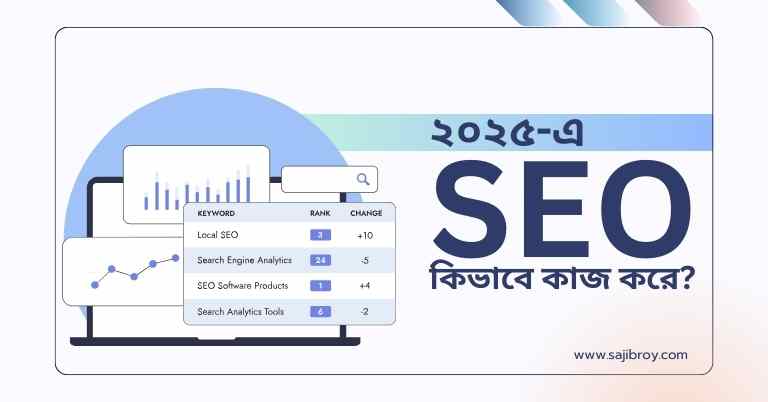No, using Google Analytics is not a direct search ranking factor. However, it can indirectly impact search rankings by helping you monitor and improve your website’s performance, user experience, and engagement metrics, which can in turn positively affect your SEO efforts.
In the digital landscape, understanding your audience is paramount. Google Analytics serves as the compass guiding your SEO journey, helping you navigate through the vast sea of online data to reach your optimization destination.
By analyzing data such as organic traffic, bounce rates, page load times, and user behavior, you can make informed decisions to optimize your site and content for better search visibility and user satisfaction. Integrating Google Analytics with other SEO tools can provide valuable insights for keyword research, competitor analysis, and identifying areas for improvement.
So while it doesn’t directly affect rankings, leveraging Google Analytics effectively can contribute to a successful SEO strategy.
Let's See the Topic Overview
What Is Google Analytics?
Google Analytics is a powerful web analytics tool offered by Google that allows website owners and marketers to track and analyze various aspects of their website’s performance. It provides valuable insights into visitor behavior, source of traffic, and conversion rates, giving businesses the information they need to optimize their online presence and make data-driven decisions. In short, Google Analytics helps you understand how your website is performing and how to improve it.
Overview Of Google Analytics
Google Analytics offers a comprehensive range of features and capabilities that enable you to gain deep insights into your website’s performance. Some of the key features include:
- Real-time data: Get up-to-the-minute information on active users, conversions, and other essential metrics.
- Audience analysis: Understand your website visitors in detail, including demographics, interests, and device usage.
- Acquisition insights: Track the sources of your website traffic and analyze the effectiveness of your marketing campaigns.
- Behavior tracking: Monitor how users interact with your website, including pageviews, session durations, and bounce rates.
- Conversion tracking: Set up goals and track conversions to measure the success of your marketing efforts.
How Does It Work?
To start using Google Analytics, you need to first set up an account and integrate the tracking code into your website. This code allows Google Analytics to collect data about your visitors and their activities on your site. Once the code is implemented, the tool starts gathering valuable data, which is then organized and presented in easy-to-understand reports.
Google Analytics uses cookies to anonymously track users and their interactions with your website. By analyzing this data, you can gain insights into user behavior, understand which pages are performing well, and identify areas that need improvement. This information can help you optimize your website’s content, design, and marketing strategies to drive more traffic and conversions.
In conclusion, Google Analytics is an essential tool for website owners and marketers looking to enhance their online performance. By providing deep insights into visitor behavior and key performance metrics, it empowers businesses to make data-driven decisions and improve their search rankings.
What Are Search Ranking Factors?
Search ranking factors are the criteria or elements that search engines like Google take into account when determining the position or ranking of a website in their search results pages. These factors play a crucial role in determining the visibility and organic traffic a website receives. Understanding search ranking factors is essential for website owners and SEO professionals to optimize their websites and improve their search engine rankings.
Importance Of Search Ranking Factors
Search ranking factors are of paramount importance when it comes to optimizing a website for search engines. By aligning our website with these factors, we can improve its visibility and attract more organic traffic. Search engines, like Google, are constantly evolving and employing complex algorithms to provide the most relevant and beneficial results to their users. By understanding and incorporating the right search ranking factors, we can stay ahead of the competition and increase our chances of ranking higher in search results.
Examples Of Search Ranking Factors
Search ranking factors encompass a wide range of elements that are taken into consideration by search engines. These factors can be broadly categorized into on-page and off-page elements. Let’s explore some examples of search ranking factors:
| On-Page Factors | Off-Page Factors |
|---|---|
|
|
These are just a few examples of the search ranking factors that search engines consider when determining the rankings of websites. It’s important to note that search engines use multiple factors in combination to evaluate the relevancy, credibility, and user-friendliness of a website.
Another important tool in the SEO arsenal is Google Analytics. But is using Google Analytics a search ranking factor? Let’s explore that further in the next section.
The Relationship Between Google Analytics And Search Rankings
Google Analytics is a powerful web analytics tool that provides valuable insights and data about website traffic and user behavior. While it is an essential tool for tracking the performance of a website, many people wonder if Google Analytics directly impacts search rankings. In this post, we will explore the correlation between Google Analytics data and search rankings to understand the relationship between the two.
Does Google Analytics Directly Impact Search Rankings?
There has been a lot of discussion and speculation about whether Google Analytics has a direct impact on search rankings. However, it’s important to note that Google itself has confirmed that Google Analytics does not directly influence search rankings. In other words, using Google Analytics on your website will not automatically boost your rankings in the search results.
It’s important to understand that Google Analytics is primarily a reporting tool that helps website owners and marketers analyze their website’s performance. It provides valuable data such as the number of visitors, their demographics, the sources of traffic, and the pages they visit. This data can be used to make informed decisions about website optimization and content strategy, but it does not have a direct impact on how Google ranks your website.
Analyzing The Correlation Between Google Analytics Data And Search Rankings
While Google Analytics does not directly influence search rankings, there is a correlation between the data it provides and how your website performs in search results. By analyzing the data from Google Analytics, you can gain insights into user behavior, engagement metrics, and website performance, which can indirectly impact your search rankings.
For example, if you notice that your bounce rate is high or the average time spent on your website is low, it may indicate that your website is not providing a satisfactory user experience. This can lead to lower rankings as Google aims to provide the most relevant and user-friendly websites to its users. Similarly, if you see that certain pages on your website are consistently performing well and driving a significant amount of traffic, it can indicate to Google that those pages are valuable and deserving of higher rankings.
While the data from Google Analytics can provide valuable insights into the performance of your website, it is important to note that it is just one of the many signals Google uses to determine search rankings. Factors such as the relevance and quality of your content, the number and authority of backlinks, and the overall user experience of your website also play a significant role in determining your search rankings.
In conclusion, while Google Analytics does not have a direct impact on search rankings, it provides valuable insights that can indirectly influence how your website performs in search results. By analyzing the data and making informed decisions about your website optimization, you can improve user experience, increase engagement metrics, and ultimately enhance your chances of ranking higher in search results.
Understanding Google Analytics Metrics
When it comes to tracking website performance and gaining valuable insights into user behavior, Google Analytics is an invaluable tool. Understanding the various metrics in Google Analytics can help you optimize your website and improve search rankings. In this article, we will delve into the key metrics in Google Analytics and how Google uses these metrics for search rankings.
Key Metrics In Google Analytics
In order to make informed decisions and improve your website’s performance, it is essential to familiarize yourself with the key metrics in Google Analytics. Let’s take a look at some of the most important metrics:
- Sessions: This metric represents the number of visits to your website within a specific time period. It gives you an idea of the overall traffic your website receives.
- Pageviews: Pageviews indicate the total number of pages viewed by your website visitors. This metric helps you understand which pages are attracting the most attention and engagement.
- Bounce Rate: Bounce rate measures the percentage of visitors who leave your website after viewing only one page. A high bounce rate could indicate that visitors are not finding what they are looking for or that your website’s content and design need improvement.
- Conversion Rate: This metric tracks the percentage of visitors who complete a desired action, such as making a purchase or filling out a contact form. A high conversion rate indicates that your website is effectively driving user engagement and achieving its goals.
- Time on Page: Time on page measures how long visitors spend on each page of your website. This metric can help you identify which pages are holding visitors’ attention and which ones may need improvement.
How Does Google Use These Metrics For Search Rankings?
Google uses a wide range of metrics, including those provided by Google Analytics, to determine the relevance, usability, and overall quality of websites. While Google Analytics does not directly impact search rankings, the insights gained from analyzing these metrics can indirectly influence your website’s performance in search results. Here are a few ways in which Google may use these metrics:
- Engagement metrics such as bounce rate and time on page provide valuable signals to Google about the user experience your website offers. A website with low bounce rate and high time on page may indicate that visitors find the content valuable, leading to a potential boost in search rankings.
- Conversion rate is an important metric for determining the effectiveness of your website in achieving its goals. A high conversion rate suggests user satisfaction, which can contribute to improved rankings.
- Pageviews and sessions indicate the level of traffic and engagement your website receives. A website with high traffic and frequent visits may be seen as more authoritative and relevant, potentially leading to better search rankings.
It’s important to note that while Google Analytics metrics can provide valuable insights, they are just one piece of the puzzle. Other factors like relevant content, user-friendly design, mobile optimization, and quality backlinks also play a crucial role in search rankings. Therefore, it is essential to use Google Analytics in conjunction with other SEO strategies to maximize your website’s performance.
Other Factors That Influence Search Rankings
Factors That Have A Direct Impact On Search Rankings
When it comes to improving your search rankings, it’s important to understand the various factors that directly influence this. These factors are essentially the core elements search engine algorithms consider when determining a website’s position on the search engine results page (SERP). Let’s take a closer look at some of the key factors that hold significant weight in search rankings:
1. Relevant Keywords:
Using relevant keywords in your website’s content, metadata, headings, and URLs can greatly impact your search rankings. Your website should align with the search queries users enter, making it easier for search engines to determine your website’s relevance to the topic.
2. Quality Backlinks:
Backlinks from reputable and authoritative websites indicate to search engines that your content is valuable and trustworthy. These high-quality backlinks can boost your search rankings significantly.
3. User Experience (UX):
Search engines prefer websites that provide a positive user experience. Factors like page load speed, mobile responsiveness, site structure, and easy navigation contribute to better search rankings.
4. Content Quality:
High-quality, unique, and informative content is crucial for improved search rankings. Search engines aim to prioritize websites that offer valuable information to their users.
Google Analytics As An Indirect Ranking Factor
Google Analytics, although not a direct ranking factor, plays a pivotal role in indirectly influencing search rankings. This powerful tool provides valuable insights and data that can be used to optimize your website for better performance and user experience. Let’s delve into how Google Analytics impacts search rankings:
1. User Engagement Metrics:
By analyzing user engagement metrics such as bounce rate, time on page, and page views, Google Analytics allows you to identify areas for improvement. Websites with low bounce rates and longer average time on page tend to receive better search rankings, as it indicates that users find the content relevant and engaging.
2. Conversion Tracking:
Google Analytics enables you to track conversion rates and identify which pages or elements are most effective in generating conversions. This data can help you optimize your website accordingly and improve its overall search visibility.
3. Site Performance Analysis:
Monitoring site performance metrics like page load speed and website responsiveness through Google Analytics is crucial in today’s competitive online landscape. A slow-loading website or poor mobile experience can negatively impact search rankings, but using Google Analytics can provide insights to help you identify and rectify such issues.
In conclusion, while Google Analytics may not directly impact search rankings, its role in providing valuable data and insights cannot be understated. By leveraging the information derived from Google Analytics, you can make data-driven decisions to optimize your website, improve user experience, and indirectly influence your search rankings positively.
Conclusion
While Google Analytics provides valuable insights into user behavior and website performance, it is not a direct search ranking factor. However, using Google Analytics can indirectly contribute to SEO by helping you understand user preferences, optimize website content, and improve overall user experience.
It is important to remember that Google uses various factors to determine search rankings, and implementing a comprehensive SEO strategy is key to boosting your website’s visibility and performance.












